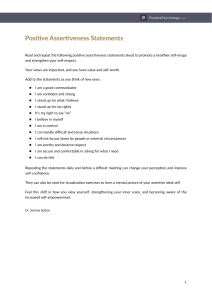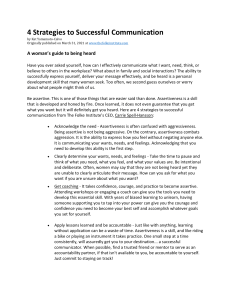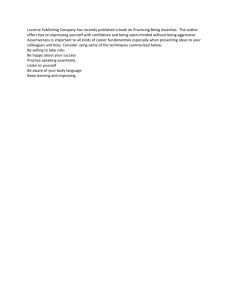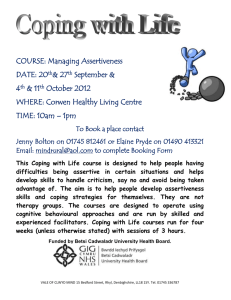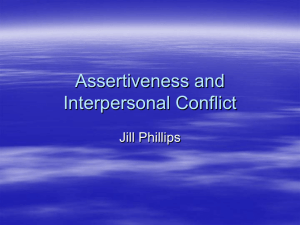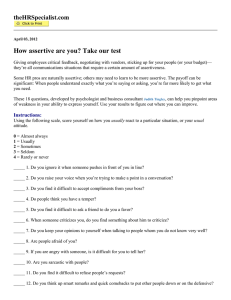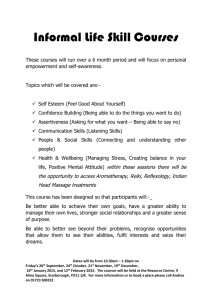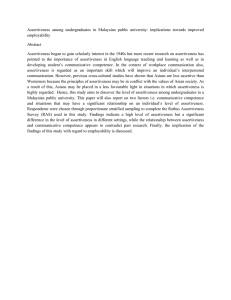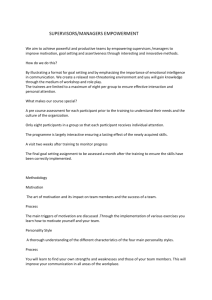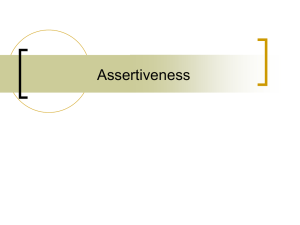Assertiveness in Pharmacy: Communication Skills Training
advertisement
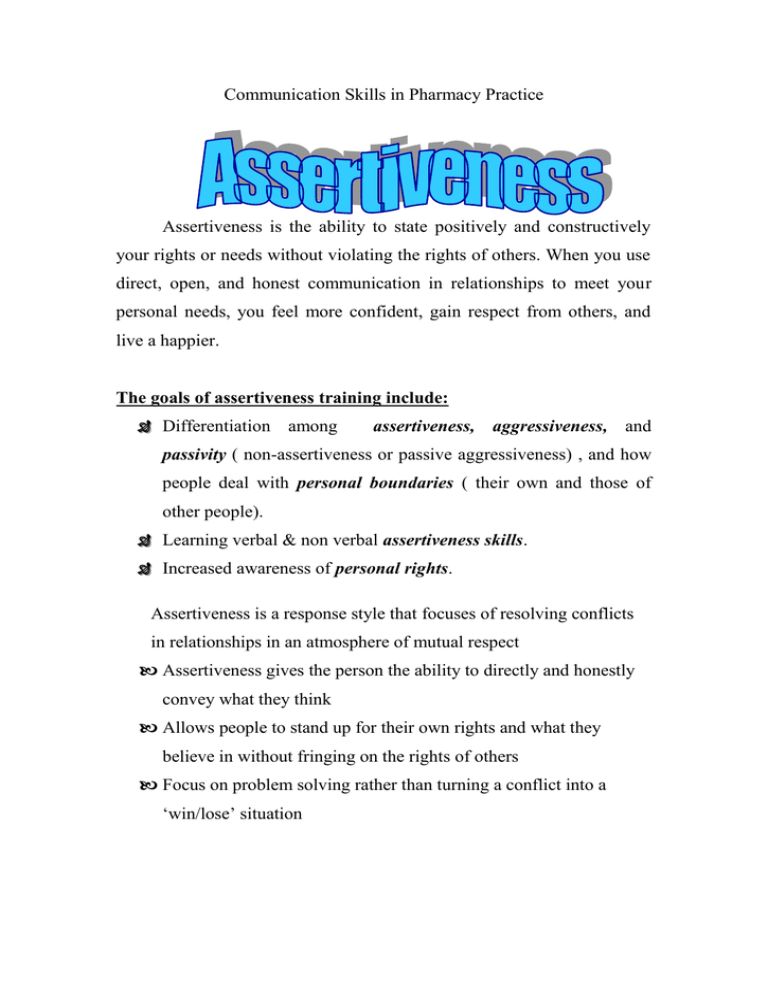
Communication Skills in Pharmacy Practice Assertiveness is the ability to state positively and constructively your rights or needs without violating the rights of others. When you use direct, open, and honest communication in relationships to meet your personal needs, you feel more confident, gain respect from others, and live a happier. The goals of assertiveness training include: Differentiation among assertiveness, aggressiveness, and passivity ( non-assertiveness or passive aggressiveness) , and how people deal with personal boundaries ( their own and those of other people). Learning verbal & non verbal assertiveness skills. Increased awareness of personal rights. Assertiveness is a response style that focuses of resolving conflicts in relationships in an atmosphere of mutual respect Assertiveness gives the person the ability to directly and honestly convey what they think Allows people to stand up for their own rights and what they believe in without fringing on the rights of others Focus on problem solving rather than turning a conflict into a ‘win/lose’ situation Passive Behavior Avoid conflict at all cost Avoids saying what he/she really think out of fear that others may not agree ‘Hides’ and waits for others to initiate conversation Put others’ needs above their own May feel secretly angry or resentful towards others May see themselves as victims Aggressive Behavior Seeks to ‘win’ his/her own conflict situations by dominating or intimidating others Promotes his/her own interests, but is indifferent or hostile to the feelings, thoughts, or needs of others May ‘win’ certain arguments in the short term, but their behaviour may lead to long-term negative consequences Assertive Behavior Direct expression of ideas, opinions, and desires Aim To communicate in an atmosphere of ‘trust’ Face conflicts and seek mutual solutions Initiate communication in a way that conveys concern and respect for others
